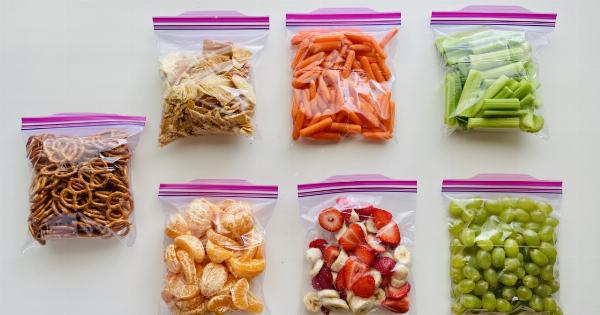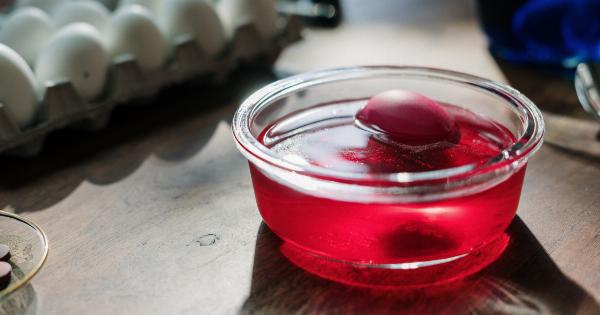Strawberries are a delightful and healthy fruit that many people enjoy. However, one common challenge faced by strawberry lovers is keeping them fresh for as long as possible.
Nothing is more disappointing than finding a moldy batch of strawberries just a few days after purchasing them. But fear not! In this article, we will share with you a simple yet effective tip to keep your strawberries from going bad too quickly.
The Culprit: Moisture
Before we dive into the solution, it’s important to understand why strawberries tend to spoil quickly. One of the main culprits behind this issue is moisture. Strawberries easily absorb moisture, which can speed up the growth of mold and bacteria.
When not properly stored, excess moisture can cause your strawberries to become soft, mushy, and eventually rot.
The Solution: Vinegar Rinse
The secret to extending the shelf life of your strawberries lies in a simple vinegar rinse. Vinegar, particularly white distilled vinegar, is known for its antimicrobial properties.
This natural ingredient can help destroy mold, bacteria, and unwanted pests that may be present on the surface of your strawberries.
Step-By-Step Guide
Step 1: Gather Your Supplies
Before you begin, gather the following supplies:.
- Fresh strawberries
- White distilled vinegar
- A colander or strainer
- A large bowl or container
- Paper towels
Step 2: Prepare the Vinegar Solution
In your large bowl or container, mix together three parts water and one part white distilled vinegar. For example, if you are using 3 cups of water, add 1 cup of white distilled vinegar.
Step 3: Soak and Swirl
Place your strawberries in the colander or strainer and lower it into the vinegar solution. Swirl the strawberries gently for about 30 seconds to ensure that each berry is thoroughly coated with the vinegar solution.
Step 4: Rinse with Water
After soaking the strawberries in the vinegar solution, remove the colander or strainer and rinse the berries thoroughly under cold water. Make sure to remove any traces of vinegar from the strawberries.
Step 5: Dry the Strawberries
Once rinsed, gently pat the strawberries dry with paper towels. It’s essential to remove excess moisture to prevent the growth of mold and bacteria.
Step 6: Store Properly
Now that your strawberries are clean and dry, it’s crucial to store them correctly to maximize their freshness. Consider the following tips:.
1. Remove Damaged or Overripe Berries
Inspect your strawberries and remove any that are damaged, moldy, or overripe. These berries can potentially contaminate the others and accelerate spoilage.
2. Use a Breathable Container
Transfer your strawberries to a container that allows for proper airflow. Avoid using airtight containers or plastic bags, as they can trap moisture and contribute to quicker spoilage.
Opt for a shallow container or a perforated berry container to maintain freshness.
3. Line the Container with Paper Towels
Line the bottom of the container with a few layers of paper towels. The paper towels will absorb any excess moisture and help keep your strawberries dry.
4. Store in the Refrigerator
Place your container of strawberries in the refrigerator to slow down the ripening process. The cool temperature will help extend their shelf life.
Ideally, store them in the crisper drawer or on a refrigerator shelf away from ethylene-producing fruits like apples and bananas, which can speed up ripening.
5. Wash Just Before Consuming
It’s best to wash your strawberries just before you plan to eat or use them. Excessive washing can introduce additional moisture and accelerate spoilage.
Conclusion
By following this simple tip of using a vinegar rinse and implementing proper storage techniques, you can keep your strawberries fresh for a longer period.
Say goodbye to prematurely spoiled berries and enjoy the delicious taste of ripe strawberries whenever you desire. Incorporate these practices into your routine, and never let another precious strawberry go to waste!.





























